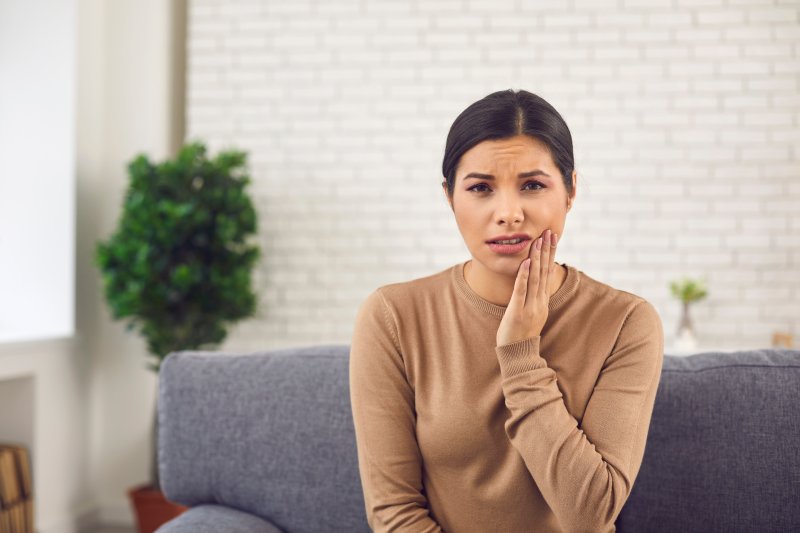Sensitive Smile Secrets: Tips for Teeth Whitening Without the Ouch
August 22, 2024

A dazzling, white smile is something many patients aspire to. But for some, the road to perfectly pearly whites can be paved with discomfort. Teeth whitening done at home, especially with unproven products, can often lead to sensitivity. Even so, you shouldn’t let that stop you from getting the smile you’ve always wanted! Continue reading to learn how you can enjoy the benefits of whitening treatments while keeping your mouth happy and pain-free.
Why Does Teeth Whitening Cause Tooth Sensitivity?
Whitening products contain active ingredients like hydrogen peroxide or carbamide peroxide. These chemicals penetrate the enamel to break down stains. However, while this process is effective for brightening your smile, it can also temporarily weaken your enamel. This thins the outer shell of your tooth, exposing the dentin within, which is full of tiny tubules leading to the nerves. This exposure can result in sensitivity, especially to hot, cold, or sweet foods and drinks.
What Can I Do to Reduce Tooth Sensitivity?
If you have your heart set on a brighter smile, there are steps you can take to protect your teeth. Here are some dentist-approved tips to get you started:
Use a Desensitizing Toothpaste
Switching to a toothpaste specifically designed for sensitive teeth a few weeks before and during your whitening treatment can make a world of difference. These toothpastes work by stopping up the exposed tubules in your dentin, blocking the pain signals.
Try Professional Whitening
While over-the-counter whitening products are convenient, professional whitening treatments performed by your dentist are often less likely to cause sensitivity. The treatment can be tailored to fit your needs, using products that minimize discomfort while achieving glowing results.
Take It Slow
If you’re using at-home whitening products, you might consider spreading out the treatments instead of doing them back-to-back. This gives your teeth time to recover between sessions and reduces the risk of sensitivity.
Avoid Extreme Foods
During and after your whitening treatment, try to avoid food and drinks that are either very hot, cold, sweet, or acidic. Since your teeth might be more sensitive during your treatment time, sticking to savory, lukewarm meals can help prevent discomfort.
Talk to Your Dentist
If you’re concerned about sensitivity, it’s always a good idea to talk to your dentist before starting a whitening regimen. They can recommend the best approach for your specific situation, including options like lower-concentration gels or shorter treatment times.
Getting a brighter smile doesn’t have to mean you have to “grin and bear it.” By following these tips and working with your dentist, you can achieve excellent results without all the ouch.
About the Author
Dr. Terry F. Rakowsky is a friendly and dedicated dentist with a doctorate from the University of Pennsylvania School of Dental Medicine. He takes pride in his work, especially when his patients light up the room with genuine smiles. He has a broad knowledge of many dental disciplines that comes from decades of experience. Call (215) 348-2224 to schedule a whitening consultation at Terry F. Rakowsky, DMD, or visit our website to discover a full menu of services we provide.
No Comments
No comments yet.
RSS feed for comments on this post.
Sorry, the comment form is closed at this time.
